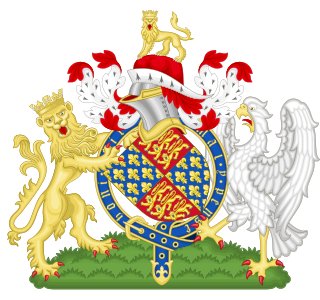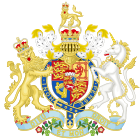
A justice of the peace (JP) is a judicial officer of a lower or puisne court, elected or appointed by means of a commission to keep the peace. In past centuries the term commissioner of the peace was often used with the same meaning. Depending on the jurisdiction, such justices dispense summary justice or merely deal with local administrative applications in common law jurisdictions. Justices of the peace are appointed or elected from the citizens of the jurisdiction in which they serve, and are usually not required to have any formal legal education in order to qualify for the office. Some jurisdictions have varying forms of training for JPs.

The Sexual Offences Act 2003 is an Act of the Parliament of the United Kingdom.

The Statute of Frauds (1677) was an act of the Parliament of England. It required that certain types of contracts, wills, and grants, and assignment or surrender of leases or interest in real property must be in writing and signed to avoid fraud on the court by perjury and subornation of perjury. It also required that documents of the courts be signed and dated.

The Treason Act 1351 is an Act of the Parliament of England which codified and curtailed the common law offence of treason. No new offences were created by the statute. It is one of the earliest English statutes still in force, although it has been very significantly amended. It was extended to Ireland in 1495 and to Scotland in 1708. The Act was passed at Westminster in the Hilary term of 1351, in the 25th year of the reign of Edward III and was entitled "A Declaration which Offences shall be adjudged Treason". It was passed to clarify precisely what was treason, as the definition under common law had been expanded rapidly by the courts until its scope was controversially wide. The Act was last used to prosecute William Joyce in 1945 for collaborating with Germany in World War II.

The Inquiries Act 2005 is an Act of the Parliament of the United Kingdom. According to the explanatory notes, published by the Department for Constitutional Affairs, the Act "is intended to provide a comprehensive statutory framework for inquiries set up by Ministers to look into matters of public concern".

The Mental Health Act 1983 is an Act of the Parliament of the United Kingdom. It covers the reception, care and treatment of mentally disordered people, the management of their property and other related matters, forming part of the mental health law for the people in England and Wales. In particular, it provides the legislation by which people diagnosed with a mental disorder can be detained in a hospital or police custody and have their disorder assessed or treated against their wishes, informally known as "sectioning". Its use is reviewed and regulated by the Care Quality Commission. The Act was significantly amended by the Mental Health Act 2007. A white paper proposing changes to the act was published in 2021 following an independent review of the act by Simon Wessely.

The Highway Act 1835 is an Act of the Parliament of the United Kingdom. It was one of the Highway Acts 1835 to 1885.
The law of Northern Ireland is the legal system of statute and common law operating in Northern Ireland since the partition of Ireland established Northern Ireland as a distinct jurisdiction in 1921. Prior to 1921, Northern Ireland was part of the same legal system as the rest of Ireland.

The Piracy Act 1698 was an Act of the Parliament of England passed in the eleventh year of King William III. The main purpose behind the statute was to make some corrections to the Offences at Sea Act 1536.

The Suffragan Bishops Act 1534 is an Act of the Parliament of England that authorised the appointment of suffragan bishops in England and Wales. The tradition of appointing suffragans named after a town in the diocese other than the town the diocesan bishop is named after can be dated from this act.

The Piracy Act 1721 (c.24) was an Act of the Parliament of Great Britain.

The Forfeiture Act 1870 is a British Act of Parliament that abolished the automatic forfeiture of goods and land as a punishment for treason and felony. It does not apply to Scotland, which did not fully abolish forfeiture until the Criminal Justice (Scotland) Act 1949. Prior to the Act being passed, a person convicted of treason or felony automatically and permanently forfeited all of his lands and possessions to the Crown. The old offence of praemunire, which was also punished with forfeiture, was only a misdemeanour, and so the Act did not apply to it.

The Vagrancy Act 1824 is an Act of Parliament of the United Kingdom that makes it an offence to sleep rough or beg in England and Wales. The legislation was passed in Georgian England to combat the increasing number of people forced to live on the streets due to the conclusion of the Napoleonic Wars and the social effects of the Industrial Revolution. Critics of the law included politician and abolitionist, William Wilberforce, who condemned the Act for making it a catch-all offence for vagrancy with no consideration of the circumstances as to why an individual might be homeless.

The Medical Act, An Act to Regulate the Qualifications of Practitioners in Medicine and Surgery, also referred to as the Medical Act 1858, was an Act of the Parliament of the United Kingdom which created the General Medical Council to regulate doctors in the UK.

An Act of Sederunt is secondary legislation made by the Court of Session, the supreme civil court of Scotland, to regulate the proceedings of Scottish courts and tribunals hearing civil matters. Originally made under an Act of the Parliament of Scotland of 1532, the modern power to make Acts of Sederunt is largely derived from the Courts Reform (Scotland) Act 2014. Since 2013, draft Acts have also been prepared by the Scottish Civil Justice Council and submitted to the Court of Session for approval.

The Burial Laws Amendment Act 1880 is an Act of the Parliament of the United Kingdom. It is one of the Burial Acts 1852 to 1885.

The Ecclesiastical Courts Jurisdiction Act 1860 is an Act of the Parliament of the United Kingdom. It is one of the Ecclesiastical Courts Acts 1787 to 1860.

The Ecclesiastical Leases Act 1571 was an Act of the Parliament of England.

The Defamation Act 2013 is an Act of the Parliament of the United Kingdom, which reformed English defamation law on issues of the right to freedom of expression and the protection of reputation. It also comprised a response to perceptions that the law as it stood was giving rise to libel tourism and other inappropriate claims.

The Criminal Jurisdiction Act 1802 was an Act of the Parliament of the United Kingdom.











